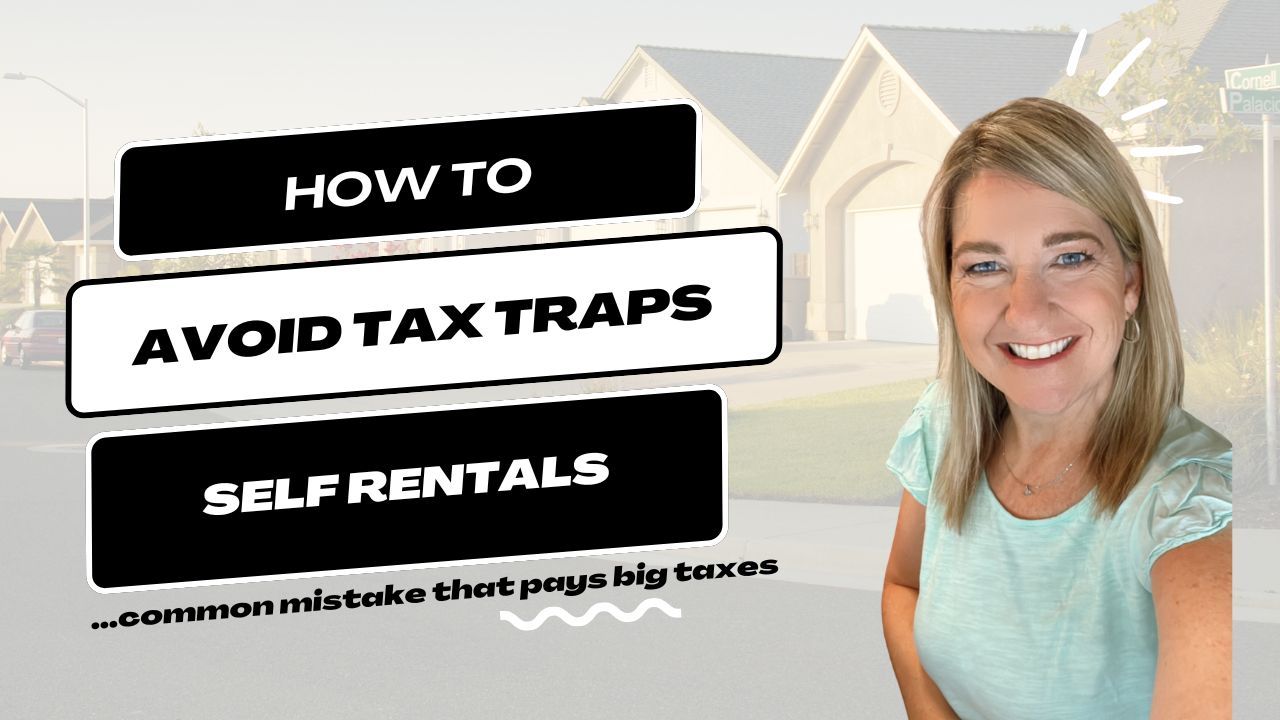The Self-Rental Tax Trap: What Election You May Be Missing That Will Cost You
Sep 18, 2025
You purchased a building to rent to your entity. Great strategic move, but if not done right, it can cost you.
Does this apply to you? If so, keep reading.
- Renting to yourself can be a smart move
- You own the building
- Your business pays rent
- You’re building equity and potentially getting tax deductions on both ends
- You are your best tenant, you get the guaranteed rent paid on time and the tax write-off...but
What could go wrong?
Plenty if you don’t make the right tax election with the IRS. This is not a time to self-file or use a strip mall tax filing service.
This strategy, often called a “self-rental,” sounds like a perfect setup. But the IRS sees it differently. In fact, if you don’t make the correct tax election, you could fall into what tax pros call the self-rental trap, where you get taxed on income but can’t deduct losses.
Let’s break down what that means and how to avoid it.
What Is a Self-Rental?
A self-rental happens when you own a property in one entity (like your personal name or an LLC), and your operating business rents the space from you.
Common example:
-
You own a commercial building through an LLC
-
Your S-Corp or partnership runs a business out of that building
-
The business pays you (or the LLC) monthly rent
This is totally legal and often makes great business sense. You control the asset, and your business gets a legitimate deduction for rent.
But here’s the problem…
How the IRS Treats Self-Rental Income (and Losses)
By default, the IRS treats rental activities as passive and your business as active.
So when you rent property to your own business:
-
Net income from the rental is recharacterized as nonpassive
-
Net losses from the rental remain passive
Read that again:
Income = taxed as nonpassive (you pay full ordinary income tax)
Losses = stuck as passive (you can’t deduct them unless you have passive income elsewhere)
This is the worst of both worlds. You get taxed now, but don’t get the benefit if the rental runs at a loss.
The Fix: Make the Correct Tax Election
The good news? You can fix this... but only if you plan ahead.
The IRS allows you to “group” your rental activity with your active trade or business under Reg. §1.469-4 (commonly called the “-4 election”).
When you make this election:
-
Your rental becomes part of your active business activity
-
Income and losses are treated the same - both as nonpassive
-
This allows you to deduct losses in the same year and avoid inconsistent treatment
But here’s the catch:
You must make the election in the first year the self-rental is placed in service or rented to your business.
If you miss that window, you could lock yourself into passive-loss treatment for years, and there’s no easy fix without going through IRS hoops.
Why This Matters Long-Term
If you don’t make the election at all or don't elect it correctly from the start:
-
You may never be able to use rental losses (unless you have other passive income)
-
You may pay more tax now and in future years
-
You risk throwing off your long-term real estate tax planning, 1031 exchanges, or future business exit strategy
And unfortunately, many tax preparers don’t know about this election or forget to make it until it’s too late.
Key Takeaways
-
Self-rental can be a powerful wealth-building tool when set up properly
-
Without the correct tax election, income is taxed now, and losses are trapped
-
The election must be made in the first year the rental activity begins
-
This election affects multiple years of tax treatment not just one
-
Work with a tax advisor who understands real estate and small business strategy
Final Thought: Renting to Yourself Is Smart If You Do It Right
Owning your business property gives you control, equity, and long-term benefits. But it also comes with hidden tax traps if you’re not careful.
Before you sign that lease with yourself, make sure your tax advisor knows how to make the specific self-rental tax election and does it on time.
Because when it comes to real estate and taxes, the IRS doesn’t play favorites... even if you’re your own landlord.
It's a great time to hire a tax expert and not self-file. Don't get yourself stuck in the tax trap that can't be unwound.




